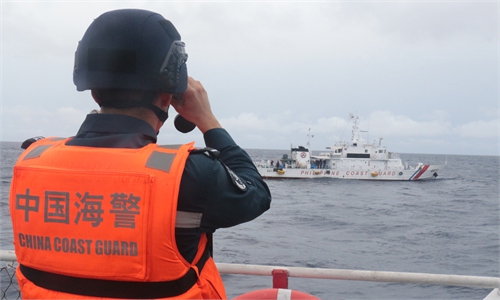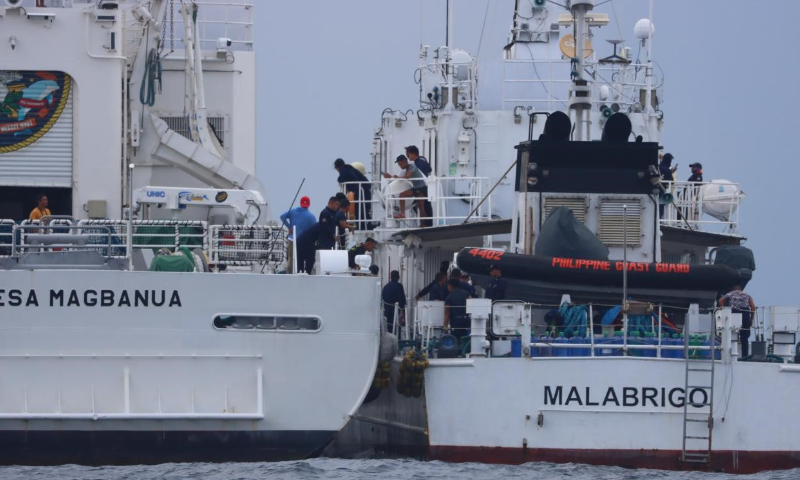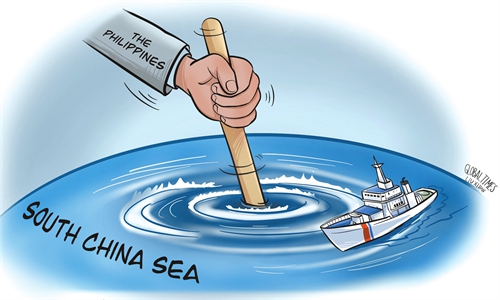On September 16, 1963, marked another historical moment when Sabah, Sarawak and Singapore joined the Federation of Malaya to form Malaysia. Singapore left the coalition two years later. This event initiated a new era to build and develop our country prior to the Independence gained in 1957. Since then, Malaysia Day is celebrated on September 16, every year to commemorate the establishment of Malaysia and as an event to continue creating a unified Malaysia.
Our country is well-known for its cultural, religious and linguistic diversity. Embracing and appreciating the beauty of differences make Malaysians grow fond of each other and stand together to become a great nation. Look at how strong we stand to combat the COVID-19 together, and continue to break the chain as ONE, we can survive and overcome this great challenge!
Wishing all Malaysians, a Happy Malaysia Day! Hope this day will keep us united with harmony!
Six decades on, many Malaysians still do not understand how Malaysia was formed, with MA63 remaining a thorny issue.
RESOLVING demands in the Malaysia Agreement 1963 (MA63) is more than just realising the key terms spelt out by Sabah and Sarawak when the two regions inked the paper six decades ago to form the Federation of Malaysia with Malaya.
Experts say it is also about honouring the Constitution upholding people’s rights.
Most agree that the 18- and 20-point list of terms made by Sarawak and Sabah respectively before signing the merger to create the new country remain relevant with regards to the two regions’ economic development and administration.
Today, despite the challenges after decades of efforts to uphold MA63, several notable milestones have been achieved; most notably the amendment to Article 1(2) of the Federal Constitution in 2021 to elevate the status of Sabah and Sarawak as regions from their previous status as “states”.
Earlier this year, Deputy Prime Minister Datuk Seri Fadillah Yusof announced that nine basic demands based on the MA63 had also been met.
As of now, 14 demands are being looked into, including oil royalty, petroleum cash payments, the regions’ rights to the continental shelves, and an increase in civil service appointments in Sabah and Sarawak under the Federal Constitution’s Article 112.
Fadillah says it will take some time for the matters to be resolved due to various complexities and strings of reviews, among others. Nevertheless, in terms of progress, can we expect to see more of the key terms fulfilled and developments on the agreement soon?
Slow but steady progress
When asked about the notable progress following the amendments to the Constitution, experts express their takes with some caution instead of being comfortable with current developments.
Universiti Kebangsaan Malaysia Ethnic Studies Institute senior research fellow Assoc Prof Dr Zaini Othman says he would
prefer to “reflect and comfortably pen it out in the manner of ‘works in progress’.
“Things are still on the table and all parties involved, especially the newly elected federal government led by Datuk Seri Anwar Ibrahim, which frequently pledges that they are working very hard to find a constructive method to resolve what I call ‘the politics of managing MA63’.
“It’s all about balancing ‘the idealist politics’ on one hand and ‘the real politics’ on the other.”
Institute of Borneo Studies’ Prof Datuk Dr Jayum Jawan from Universiti of Malaysia, Sarawak, says so far the public has not read much on what exactly has been accomplished.
This is other than “some increase in allocation, which does not need any Constitutional
amendments, and in fact, there is no guarantee that the next prime minister will follow through with
nd the same amount.”
Prof Jayum also says there has been no details about how Sarawak’s people will benefit from its negotiations with national oil and gas company PETRONAS over the sharing of oil revenue from the region’s offshores.
“In fact, why is Sarawak negotiating with PETRONAS? The latter is not a government body.
And post amendments made to the Constitution, he points out that the return of Bintulu Port to Sarawak’s authority will “benefit the state’s coffers”.
But how will all of this actually benefit Sarawak’s people?
Prof Jayum says there are many state-centric issues, including
infrastructure and development-related matters, that Sarawak needs to look into following the increase in state revenue.
“There are collapsed bridges in Kapit, while the former resettlement schemes of Nanga Tada, Nanga Ngungun, and Nanag Jagau as well as Sekuau are still lacking and lagging in infrastructure.
“Also, despite the Pan-borneo road’s construction, there is not enough increase in economic activities to sustain the livelihood of the resettled people in these four security resettlement schemes.
“My recent visit discovered major disappointment among the settlers, who felt that they have been abandoned, not given comprehensive help to chart their
future by either the federal or state government.”
Very relevant
It does not help that there are some who question the relevance of ongoing efforts to champion MA63.
Noting that calling for the realisation of MA63 is not about meeting the regions’ demands per se, Zaini stresses that this issue should not be raised at all, since it centres on honouring the Constitution and the rights of the country’s founders.
“To me, it is not about ‘how relevant’ (is the agreement). It is all about the concept and form of our country. On Sept 16, 1963, all parties and entities agreed to form a ‘federal state’ named ‘Persekutuan Malaysia’ (Federation of Malaysia).”
He says the concept of Malaysia’s federacy should already ascertain the standing of the key terms in MA63.
“The federation managed to exist under the auspicious agreement of MA63. It is under this particular ‘political philosophy and nuance’ that all Malaysians have to abide by ‘the federalist agreement’ as spelt out within the agreement, which is structurally manifested and enshrined in the Malaysia Constitution 1963.
“In other words, as long as Malaysia recognised herself as a ‘federal state’, no questions about ‘the relevancy’ of the MA63 should arise unless all parties agree to change the concept and form of the country from federal
to non-federal state.”
Ongoing talks
On Friday, Anwar sat with Sabah and Sarawak leaders to chair the MA63 Implementation Action Council in Kota Kinabalu. Those in the know say the meeting proceeded cordially, as the Prime Minister was already prepared to announce a piece of good news which some say signifies the Federal Government’s commitment to resolving the MA63 key terms.
Sabah Chief Minister Datuk Seri Hajiji Noor later expressed his elation after Anwar announced an Rm300mil increase in the interim special grant – now at Rm600mil – from the Federal Government for next year.
The special grant is made pending resolution of Sabah’s 40% revenue entitlement.
Hajiji, in earlier reports, had said the fundamental Constitutional rights of the state concerning the 40% revenue special grant are under Articles 112C and 112D of the Constitution, and that the matter is now under the purview of the MA63 technical committee chaired by Fadillah.
Other than Hajiji, the meeting was also attended by Sarawak Premier Tan Sri Abang Johari Openg; both have agreed to enter into a high-level discussion on the regions’ respective claims, including the return of the continental shelf under the Territorial Sea Act 2012, royalties, and stamp duty.
But things are not completely easy and breezy. Fadillah says as of now, many technical issues cannot be resolved at the committee level due to differences in legal jurisdictions.
“For instance, Sabah and Sarawak view the land sales’ stamp duty as under their authority, but the Federal Government considers the matter as an instrument of sale under its prerogative.”
What’s next on the table?
When it comes to negotiations, Prof Jayum says that Sarawak leaders must stand on the right premise concerning talks with the Prime Minister.
“It is neither about demanding nor negotiating, but asking that Anwar’s government honour the long-abandoned agreement.”
It must also be pointed out that
“Sarawak need not wait to do better in managing its territory.
“For example, autonomy, it is already there. What else does the territory need? Sarawak has the power to filter unwanted elements from coming in and disturbing peace within Sarawak.
“On education, there is no need to ask for education autonomy. Sarawak already has the authority to set a foundation to help students.
“There is already sufficient power and authority given in the State List under the 9th Schedule
of the Federal Constitution.”
Zaini says there are several unresolved MA63 terms related to oil royalties and cash payments for petroleum, oil minerals and oil fields.
“Additionally, there are outstanding matters regarding the Territorial Sea Act 2012, rights over the continental shelf, and an increase in public service appointments in Sabah and Sarawak.”
Despite the latest developments, Zaini says people must realise that measures related to the 40% revenue entitlement for Sabah, for example, remain a work in progress.
“No specific measures have been announced as yet, despite the dissatisfaction expressed by the Sabah government over the slow progress and the ‘neither here nor there attitude’ of the Federal Government.”
Politics also play a role in ensuring MA63’S key terms are met, says Zaini. For instance, he says the political divisions in Sabah have affected negotiations.
“These divisions, in many ways have further marginalised and weakened the negotiating power between the state and federal leadership, and have been cited as major hurdles to realising the agreement’s objectives.
“Former Dewan Rakyat Speaker Tan Sri Pandikar Amin Mulia has emphasised that political unity is crucial to avoid external manipulation and ensure the effective restoration and implementation of the territory’s rights under MA63.”
Challenges along the MA63 road
THE road towards the creation of a country and honouring the Malaysia Agreement 1963 )MA63) is not without bumps, obviously.
For instance, the Kelantan government had on Sept 11, 1963 – four days before the announcement on the Federation of Malaysia – filed a suit to argue that the MA63 and its subsequent Act were not binding on Kelantan on the grounds that the latter had effectively abolished Malaya, contrary to the 1957 Malaya Agreement.
The state said any proposed changes would require the consent of each constituent state, which in the case of the formation of Malaysia, was not obtained. However, the suit was dismissed by then Chief Justice of Malaya James Thomson who ruled that no law or Constitution was violated. (See graphic on pages 24 and 25 for more.)
The announcement of the Federation of Malaysia as a new country then went on without a hitch. However, just 10 months later, on July 21, 1964, racial tensions erupted into violence during a procession celebrating the Prophet Muhammad’s birthday in Singapore.
Throughout the remainder of 1964 and into 1965, political and economic disputes between Singapore’s ruling People’s Action Party and Umno intensified. The protracted disagreements led to Singapore being expelled from Malaysia on Aug 9, 1965 (though some argue Singapore left of its own accord).
And later as Malaysia stepped into the 1970s, Sabah and Sarawak faced significant challenges in asserting their rights as spelt out in the MA63.
Among others, the Petroleum Development Act of 1974 was mooted to centralise the control of oil and gas resources under
PETRONAS, sparking disputes over revenue sharing and resource management. Both states felt the centralisation unfairly disadvantaged them.
Sabah and Sarawak have also long sought greater autonomy in areas like education and healthcare, clashing with federal policies that they feel do not address their unique needs. Economic disparities have been a major issue, with complaints about inadequate development funds and unfair revenue distribution.
However, as the country moves forward, a change in government in the 14th General Election renewed the calls for honouring the agreement, which had also been listed under the then Pakatan Harapan’s manifesto.
But again, hurdles remained when the Pakatan government failed to obtain the two-thirds Parliament majority it needed to amend Article 1(2) of the Federal Constitution during a sitting on Aug 9, 2019.
A two-thirds vote majority, which amounts to 148 out of the 222 seats in the Dewan Rakyat, is needed to amend the Constitution. Pakatan managed to secure 138 votes, with no lawmakers disagreeing. However, 59 MPS abstained from voting.
Former federal minister (now Sarawak Yang Di-pertua Negeri) Tun Dr Wan Junaidi Tuanku Jaafar criticised PH government’s proposed constitutional amendment on Sabah and Sarawak, labeling it as a “political ploy.” He said Sarawak’s ruling coalition, Gabungan Parti Sarawak (GPS), had proposed an amendment that explicitly referenced MA63 in Article 1(2).
Their proposed changes aimed to clarify the status of the states in relation to MA63.
Nevertheless, on Dec 14, 2021, the government successfully made the constitutional amendment to re-establish Sabah and Sarawak as equal partners with Peninsular Malaysia (nee Malaya).
The Bill passed with 199 MPS voting in favour and 21 absent. Wan Junaidi said the amendment places MA63 alongside the Federal Agreements of 1948 and 1957, ensuring these states are acknowledged as autonomous entities within Malaysia.article 160(2) now includes MA63, reflecting the formation of Malaysia more accurately. The amendment also officially designates Sept 16, 1963, as Malaysia Day, correcting the Constitution’s previous focus on Malayan Independence. This change ensures that Sabah and Sarawak’s demands are now part of the Federal Constitution.
15 Sep 2024









